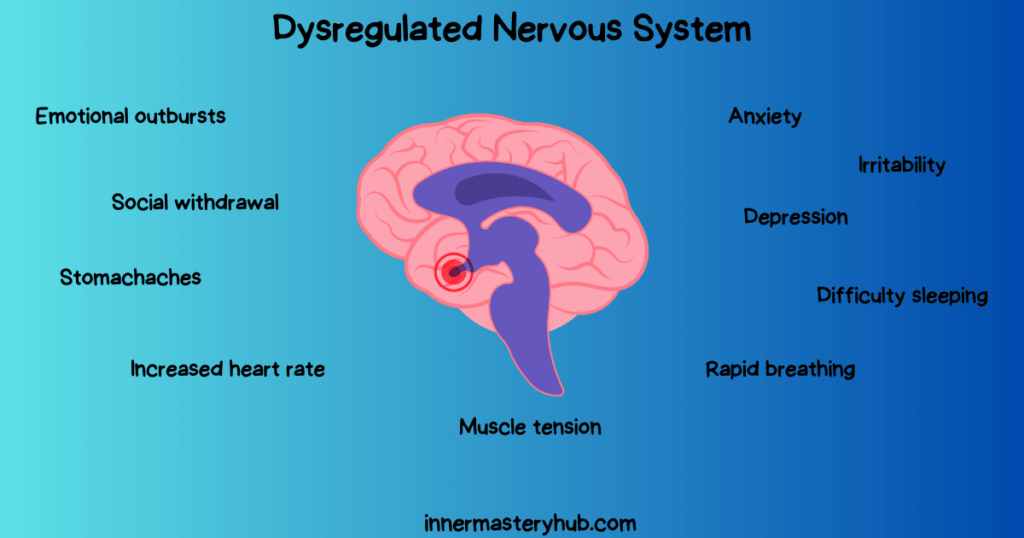Supporting Teen Mental Health: Strategies for Parents and Educators

When Sarah’s grades began to slip and she became increasingly withdrawn, her parents realized they needed to take action. You might find yourself in a similar situation, unsure of how to support a teen facing mental health challenges.
It’s essential to establish open lines of communication and create an environment where they feel safe to express their feelings. But what specific strategies can parents and educators implement to nurture resilience and emotional well-being effectively? Exploring these approaches could make all the difference.
Understanding Teen Mental Health
Understanding teen mental health is essential, as many young people face challenges that can greatly impact their well-being. During this critical developmental stage, adolescents navigate various stressors, including academic pressures, social dynamics, and the formation of their identity.
It’s a time when emotional changes are heightened, making them more vulnerable to mental health issues like anxiety and depression. Research shows that approximately one in five teens is facing a mental health disorder.
You may notice that stress can manifest in various ways, such as irritability, withdrawal from activities, or changes in sleep patterns. It’s essential to acknowledge that these behaviors often originate from more profound emotional struggles. Teens mightn’t always have the language to express what they’re feeling.
Encouraging open conversations about mental health can create a supportive environment. Let them know it’s okay to seek help, whether through a trusted adult or a mental health professional.
By validating their feelings and experiences, you empower them to prioritize their mental health. Remember, understanding is the first step towards building resilience and promoting overall well-being.
Your involvement can make a significant difference in their journey, helping them feel less alone and more understood during these formative years.
Recognizing Signs of Distress
Recognizing signs of distress in teens is essential for providing the support they need. As a parent or educator, you’ll want to stay alert to changes in behavior, mood, and social interactions. Look for signs such as withdrawal from friends, a sudden decline in academic performance, or drastic mood swings. These behaviors can indicate underlying emotional struggles.
Physical symptoms can also be a red flag. If your teen experiences frequent headaches, stomachaches, or noticeable changes in sleep and appetite, it’s time to pay attention. Emotional signs, such as persistent sadness, irritability, or feelings of hopelessness, are also critical to note.
The National Institute of Mental Health emphasizes that early intervention can significantly improve outcomes for teens facing mental health challenges.
Open communication is essential. Encourage your teen to share their feelings without judgment. Let them know it’s okay to talk about what they’re going through.
When these signs don’t improve or seem to be worsening, it may signal that more structured support is needed. You can click here to find youth treatment programs for troubled adolescents, including options like outpatient counseling, intensive outpatient programs, and residential care. Exploring these resources early helps you match the level of care to your teen’s needs and prevents problems from escalating into a full-blown crisis.
Creating a Supportive Environment
Creating a supportive environment for your teen is vital in promoting their mental well-being. You can foster this environment by ensuring that your home feels safe and welcoming. Acknowledge their feelings, and let them know it’s okay to express themselves without fear of judgment. Research indicates that emotional support enhances resilience and helps teens navigate challenges.
Encourage healthy routines, including regular sleep, exercise, and a balanced diet. These factors have a significant impact on teen mental health. Creating a structured daily routine can provide stability, making your teen feel secure.
Additionally, it’s important to model positive coping strategies. Show them how to manage stress through activities like mindfulness, journaling, or engaging in hobbies. When they see you handle challenges calmly, they’re more likely to adopt similar approaches.
Lastly, involve your teen in creating a comfortable space in your home where they can unwind and relax. This could be a cozy reading nook or a creative corner.
Open Communication Techniques
Establishing open communication is a key element in supporting your teen’s mental health. You want your teen to feel comfortable sharing their thoughts and feelings with you, so it’s crucial to create a safe and non-judgmental environment.
Start by actively listening. When your teen talks, give them your full attention. Show that you value their words by nodding, maintaining eye contact, and responding thoughtfully.
Use open-ended questions to encourage deeper conversations. Instead of asking, “Did you have a good day?” try, “What was the best part of your day?” This invites more than a simple yes or no response.
Be mindful of your tone and body language; they can significantly influence how your teen perceives your openness.
It’s also important to be consistent. Regularly check in with your teen, even when they appear to be fine. This shows them that you care and are available to talk whenever they need.
Finally, could you respect their privacy? If they share something personal, maintain that trust.
Encouraging Emotional Expression
Encouraging your teen to express their emotions openly is essential for teens’ mental health. When teens feel comfortable sharing their feelings, they’re more likely to manage stress and build resilience.
As a parent or educator, you can create a safe space for emotional expression by modeling vulnerability yourself. Show them it’s okay to feel a range of emotions, from happiness to sadness.
Here are some strategies to support emotional expression:
- Use Open-Ended Questions: Ask questions that invite deeper discussion, such as “How did that make you feel?” instead of yes/no questions.
- Validate Their Feelings: Acknowledge their emotions without judgment. Phrases like “I understand this is tough for you” can go a long way in making them feel heard.
- Encourage Creative Outlets: Suggest activities like journaling, art, or music that allow them to express feelings in a way that feels comfortable.
Promoting Healthy Relationships
While navigating the complexities of adolescence, fostering healthy relationships is crucial for your teen’s mental well-being. Positive connections with peers, family, and mentors can provide emotional support, boost self-esteem, and reduce feelings of loneliness.
Encourage your teen to engage in open communication and express their feelings honestly and understandingly. This practice not only strengthens bonds but also builds trust.
Teach your teenager the importance of setting boundaries and practicing mutual respect in relationships. Help them recognize healthy versus unhealthy dynamics, emphasizing that it’s okay to distance themselves from toxic influences.
As a parent or educator, model healthy relationships in your own life; your actions set an example.
Encourage involvement in activities that promote social skills, such as team sports, clubs, or volunteer work. These settings allow your teen to form friendships based on shared interests, fostering a sense of belonging.
Additionally, remind them that it’s normal to experience conflicts in relationships; what matters is how they resolve these issues.
Balancing Screen Time and Real Life
Today’s teens often spend a significant amount of time on screens, whether for socializing, entertainment, or schoolwork.
While technology can enhance learning and connection, it’s vital to balance screen time with real-life interactions to support teen’s mental health. You can help your teen achieve this balance by setting guidelines and encouraging alternative activities.
Consider implementing these strategies:
- Establish Tech-Free Zones: Designate specific areas in your home, such as the dining room or bedrooms, where screens aren’t allowed. This promotes face-to-face conversations and quality time together.
- Encourage Outdoor Activities: Suggest regular outings, such as hiking, biking, or playing sports. Physical activity not only improves mood but also helps reduce anxiety and stress.
- Model Healtheens’ bits: Demonstrate your own balanced use of technology. By limiting your screen time and prioritizing real-life interactions, you set a positive example for your teen.
Teaching Coping Mechanisms for Teens’ Mental Health
Coping mechanisms are essential tools that help teens navigate life’s challenges and emotional ups and downs. As a parent or educator, you can play a significant role in teaching these skills.
Begin by fostering open discussions about emotions. When teens feel safe expressing emotions, they’re more likely to seek help when needed.
Introduce practical coping strategies tailored to their interests. For instance, if your teen enjoys art, consider suggesting that they use drawing or painting as an outlet for their emotions. If they’re active, physical exercise can serve as a powerful stress reliever. Some families have also found that transitioning to an online elementary school during their child’s early years helped create a more flexible and supportive environment for their child’s learning and emotional needs.
Mindfulness practices like deep breathing or meditation can also help them manage anxiety and promote emotional regulation.
Help them understand that it’s okay to ask for support. Please encourage them to reach out to trusted friends or adults when they’re feeling overwhelmed.
Role-modeling healthy coping strategies yourself can also be impactful—show them how you handle stress and setbacks.
Stress Management Strategies
Embracing effective stress management strategies is essential for teens to maintain their mental health and well-being. You can help your teen develop these strategies by encouraging them to explore various techniques that resonate with their individual preferences.
Here are three evidence-based strategies that can make a significant difference:
- Mindfulness and Meditation: Practicing mindfulness helps teens focus on the present moment, reducing anxiety and promoting emotional regulation. Please encourage them to spend a few minutes each day in meditation or deep breathing exercises.
- Physical Activity: Regular exercise can be a powerful stress reliever. Whether it’s dancing, running, or playing a sport, physical activity releases endorphins that elevate mood and decrease stress levels.
- Time Management: Teaching your teen adequate time management skills can reduce feelings of overwhelm. Help them create schedules or to-do lists to prioritize tasks, ensuring they don’t feel buried under their responsibilities.
Fostering Resilience in Teens
As teens navigate the myriad challenges of adolescence, fostering resilience becomes essential for their mental health. Resilience isn’t just about bouncing back from setbacks; it’s about developing the skills to face challenges head-on. You can encourage your teen to cultivate a growth mindset, where they view obstacles as opportunities for growth rather than insurmountable barriers.
Teach them that failure is a part of life, and it’s okay to stumble. Share stories from your own experiences, emphasizing the lessons learned from challenges. Encourage problem-solving by allowing them to tackle issues independently, but be there to support them when needed.
Creating a safe space for open communication is fundamental. Let your teen express their feelings without judgment, reinforcing that it’s normal to feel overwhelmed sometimes. You can also model resilience by demonstrating coping strategies when faced with your own difficulties.
Additionally, promoting healthy relationships with peers fosters a sense of belonging, which is essential for resilience. Encourage activities that build social connections, whether it’s through sports, clubs, or volunteer work.
Collaborating with Teens’ Mental Health Professionals
Steering through the complexities of teen mental health can feel overwhelming, but collaborating with mental health professionals can provide essential support.
It’s essential to recognize that these experts offer valuable insights and tools to support both you and your teen. By working together, you can create a more thorough support system that addresses your teen’s unique needs.
Here are some practical ways to collaborate:
- Share Observations: Provide mental health professionals with detailed observations about your teen’s behavior, mood changes, and social interactions. This context can enhance their understanding and treatment approach.
- Participate in Treatment: Engage in family therapy sessions or workshops. Your involvement can reinforce strategies learned and create a united front in supporting your teen.
- Stay Informed: Stay up-to-date on mental health topics and resources. Knowledge empowers you to ask the right questions and make informed decisions regarding your teen’s care.
Involving Teens in Decision-Making
Involving teens in decision-making about their mental health fosters a sense of autonomy and responsibility. When you engage your teen in discussions about their mental health, you’re not just giving them a voice; you’re empowering them to take charge of their well-being.
Research shows that teens who actively participate in decisions regarding their mental health are more likely to stick to treatment plans and feel confident in managing their emotions.
Start by asking open-ended questions that encourage them to express their feelings and thoughts. For instance, you might ask how they feel about specific coping strategies or what they think might help them during tough times.
This approach not only validates their emotions but also helps them develop significant thinking skills.
It’s also essential to provide information and options without overwhelming them—present choices that align with their interests and values, allowing them to weigh the pros and cons.
Resources for Parents and Educators
Steering through the complexities of teen mental health can be challenging for parents and educators alike, but there are numerous resources available to provide support and guidance.
Understanding where to turn for help is essential, and having the right tools can make a significant difference in maneuvering these issues.
Here are a few valuable resources you can utilize:
- National Alliance on Mental Illness (NAMI): NAMI offers a wealth of information, including support groups, educational materials, and crisis resources specifically geared towards teens and their families.
- Substance Abuse and Mental Health Services Administration (SAMHSA): This organization provides a national helpline and online resources to help you find local services for mental health and substance use challenges.
- Common Sense Media: This platform provides insights into the impact of digital media on teen mental health, along with guidance on cultivating healthy tech habits.
Building a Community of Support
Creating a supportive community around your teen can be a game-changer for their mental health. When you foster connections among family, friends, teachers, and counselors, you create a safety net that encourages open communication and emotional support. Research shows that teens with strong social networks are less likely to experience anxiety and depression.
Start by engaging with other parents and educators to establish a collaborative environment. Organize community events, workshops, or support groups that focus on mental health awareness. These gatherings can help normalize discussions about mental health, making it easier for your teen to seek help when needed.
Encourage your teen to participate in extracurricular activities where they can meet peers who share similar interests. These connections can enhance their sense of belonging and boost their self-esteem.
Additionally, teach them the importance of empathy and support; when they learn to be there for others, it reinforces their own resilience.
Lastly, don’t underestimate the power of digital communities. Encourage your teen to connect with positive online groups focused on mental health. By building a supportive network, you’re giving your teen the tools they need to thrive emotionally and socially.
Conclusion
Supporting teen mental health isn’t just a task; it’s a team effort. By fostering friendships, facilitating open conversations, and prioritizing emotional well-being, you create a caring community where teens can thrive. Encourage exploration of healthy habits, and don’t hesitate to seek professional help when needed.
Remember, your involvement can significantly strengthen their sense of security and self-worth. Together, you can build bonds that boost their resilience and empower them to embrace life’s challenges with confidence.






